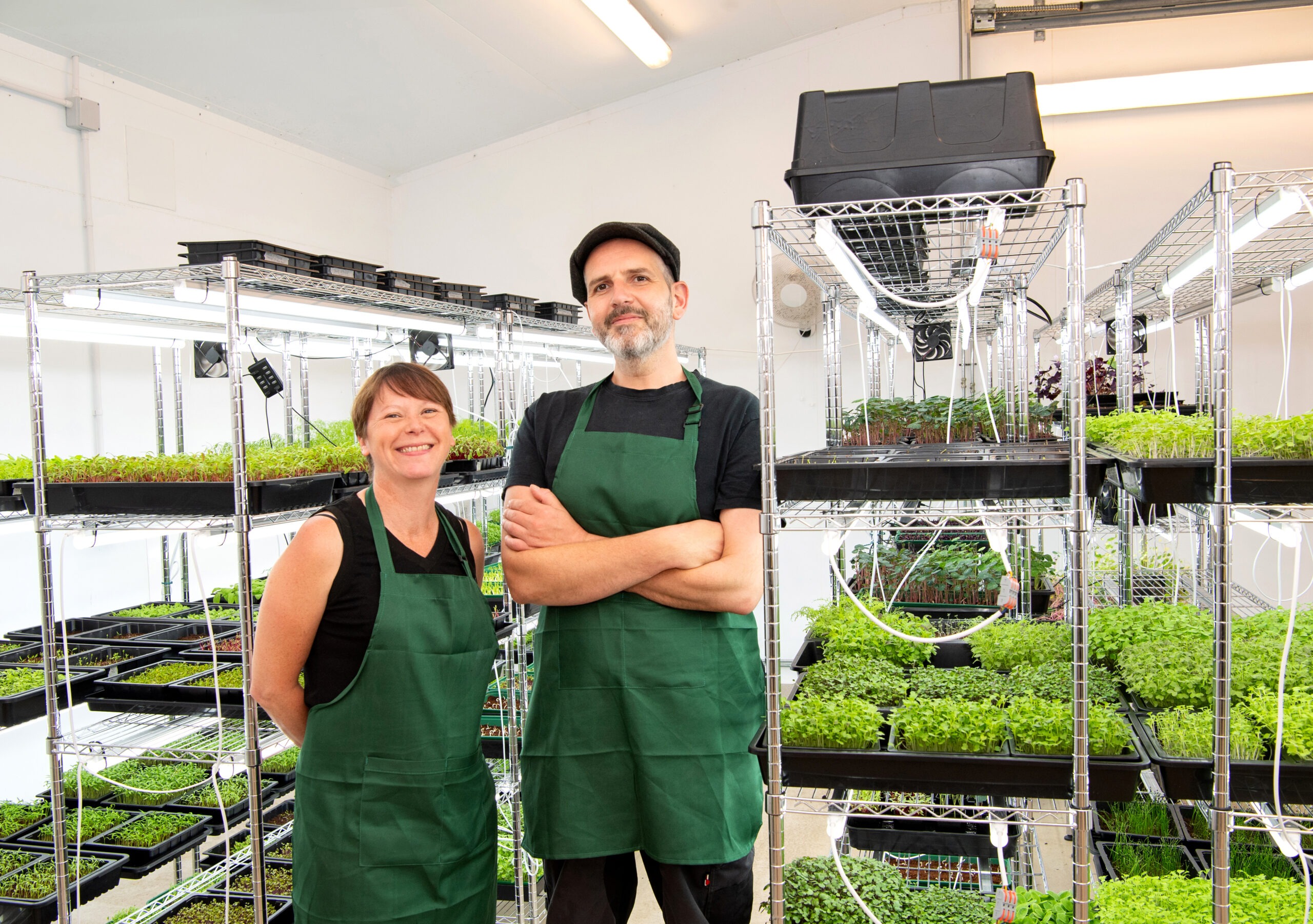


Green Up Farm Ecopreneurs Toni and Alex Borella grow superfoods which enhance nutrition and culinary arts
When Toni and Alex Borella turned their back on London to escape to rural Pembrokeshire, they decided to launch Green Up Farm, their dream business farming micro greens and micro herbs.
They have been able to develop the passion project they began in 2021, thanks to the support of the British Business Bank’s Start Up Loans programme.
Toni, 49, said: “I grew up in in Sully, South Wales, so have spent lots of time in Pembrokeshire and know just how beautiful it is and Alex, who is a chef and originally from northern Italy, is also very aware of the beauty of the natural world. So, in 2019, we made the big move from London to North Pembrokeshire.”
Toni was unhappy working remotely in sales and tech marketing positions and she and Alex were keen to work together. When they were both furloughed, they decided to launch their venture.
Toni said: “We have agriculture in abundance on our doorstep here and throughout furlough, would enjoy the beautiful area we live in, which was secluded. It was really inspiring and so initially we started with growing five crops under lights in our spare, small double bedroom.
“We thought about investing in a small holding and then about farming monocultured micro greens indoors to address the biodiversity crisis.”
An £8,000 Start Up Loan enabled them to invest in environmentally sound and hygienic packaging trays for their microgreens – the colourful and more flavoursome first shoots of seeds – which they grow under low-wattage LED lights at their 100 square metre commercial unit at Food Centre Wales in Horeb, Llandysul.
Today Green Up Farm grows plant varieties including sunflower, rose radish and pea shoot tendril and micro herbs, which take an extra week or so to grow, and include rainbow swiss chard and carrot tops.
Alex continues as a part time baker at local favourite, Crwst; which Green Up Farm supplies, alongside most other mid to high end eateries across the culinary renowned region.
Toni explained: “We’ve gone from strength to strength but began having challenges around our growing trays for distribution.
“There’s great strength in being a zero waste business, but it can also be quite problematic. All our produce is grown and sold live to customers in returnable and reusable trays, which we deliver and then collect them the following week.
“We haven’t put any single use plastic out there for landfill, but we researched, designed and manufactured our own bespoke growing tray made from clear plastic rPET which is 100% recyclable and returnable. Nothing like it exists in the UK for commercial growers and the UK’s £5 billion horticultural sector.
“Our rPET clear plastic growing trays provide an opportunity to contribute to the plastic circular economy, as the UK government is investing significantly in recycling centres across the country
“It’s been a long but exciting journey to get to where we are now. We are very lucky that the British Business Bank really believed in what we do and understood our vision – as a start up business that can be very difficult and very rare.
“We’re investing the loan into the tooling of the final product which we hope to launch very soon. We then hope to expand and distribute across Wales and over the bridge into England, which would require more staff. We’re also planning on looking into using passive solar greenhouses to harness the sun’s energy.
“We’ll roll out the rPET for our own supply chain then look to develop the range to include grow pots and trays which can be sold wholesale in the UK and across Europe.”
Jessica Phillips-Harris, Senior Manager for Wales at the British Business Bank, said: “The story of Green Up Farm is inspiring, the owners wanted to come back to Wales, leave careers they didn’t like and then made the most of furlough to come up with a positive, eco-friendly business. The British Business Bank is committed to helping sustainable businesses start up, thrive and grow.
“We wish Toni and Alex the best of luck as they seek to expand their business further in Wales and then into England.”